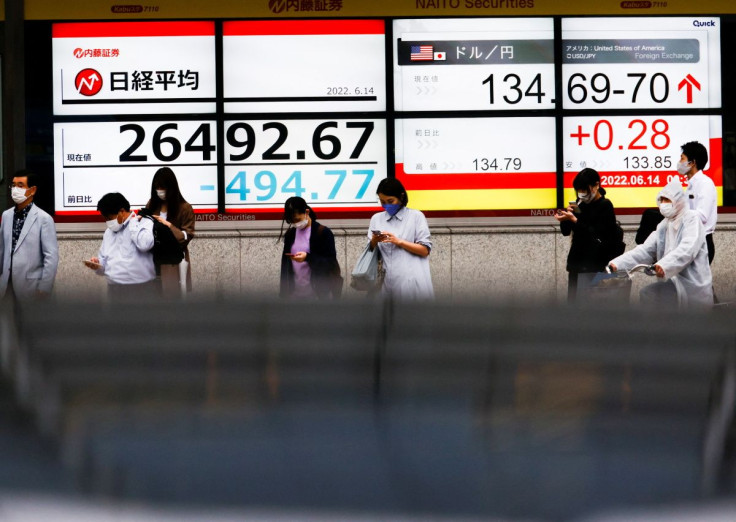World Stocks Eye Sixth Day Of Gains; Euro Hit As Activity Data Sours

Global stocks edged up on Friday to eye a sixth day of gains, while weak euro zone business activity data hit the euro and weighed on the bloc's debt.
The MSCI World index, its broadest gauge of equity markets, was last up 0.1%, while the Euro STOXX 50 index extended gains to trade up 0.4%.
Overnight, the MSCI's broadest index of Asia-Pacific shares outside Japan rose 0.1%, on course for its biggest weekly gain in about two months.
U.S. stock futures pointed to a lower open after weak overnight earnings from tech company Snap Inc sounded the alarm among investors ahead of earnings from Twitter Inc later on Friday.
Despite the weak overnight sentiment, S&P 500 futures pared losses into the open and were last down about 0.2%, with Nasdaq futures down 0.3%.
Despite Russian gas flowing back to Europe, for now, and some strong earning reports in the region, political tension in Italy tempered sentiment as did the outlook for further central bank action on both sides of the Atlantic amid rising inflation.
The European Central Bank raised interest rates by a bigger-than-expected 50 basis points to zero percent on Thursday, its first hike in 11 years, and ended a policy of negative interest rates that had been in place since 2014.
Mark Haefele, chief investment officer at UBS Global Wealth Management, said he remained cautious about the outlook for stocks.
"The larger-than-expected 50-basis-point hike was positively received by markets, but we retain a cautious view on European stocks as the ECB treads a fine line between fighting inflation and avoiding recession," he said.
After initially gaining, the euro pulled back against the dollar and fell further on Friday as traders weighed the likely rates trajectory. It extended losses after weak business activity data hit traders' screens.
Euro zone business activity unexpectedly contracted this month, with companies continuing to report rising costs as inflation bites, hitting consumer demand and weighing on the outlook, a survey showed.
The euro was last down 0.7% against the dollar at $1.0164, but remains up about 0.8% on the week, on course for its biggest gain in two months.
German 10-year debt yields also took a hit on the weak Purchasing Managers Index data, and fell as much as 17 basis points (bps) to 1.046%. They last traded at 1.06%.
"I think it's pretty clear that the market is growing increasingly worried about a eurozone recession this winter - activity is already falling off a cliff, and that's before any potential Russian gas cut-off into the winter. The big bid into bonds is no surprise", Michael Brown, head of market intelligence at Caxton, said.
Elsewhere in foreign exchange markets, the dollar was up 0.4% against a basket of major peers, buoyed by the euro weakness, but remained on course for its biggest weekly fall since late May as recent weak economic data tempered bets for the size of an expected Federal Reserve interest rate rise.
The U.S. Federal Reserve meets to set interest rates next week and expectations of a 100 bps hike have faded in favour of pricing for a 75 bps move.
Leading cryptocurrency Bitcoin was last up 1.6% to $23,470 and was on course for its best week since last October.
Across commodities, oil prices extended early losses, with Brent crude futures down 1.3% and U.S. WTI crude futures down around 1.5%. Gold traded higher, up 0.3% at $1723.5 an ounce.
© Copyright Thomson Reuters 2024. All rights reserved.




















